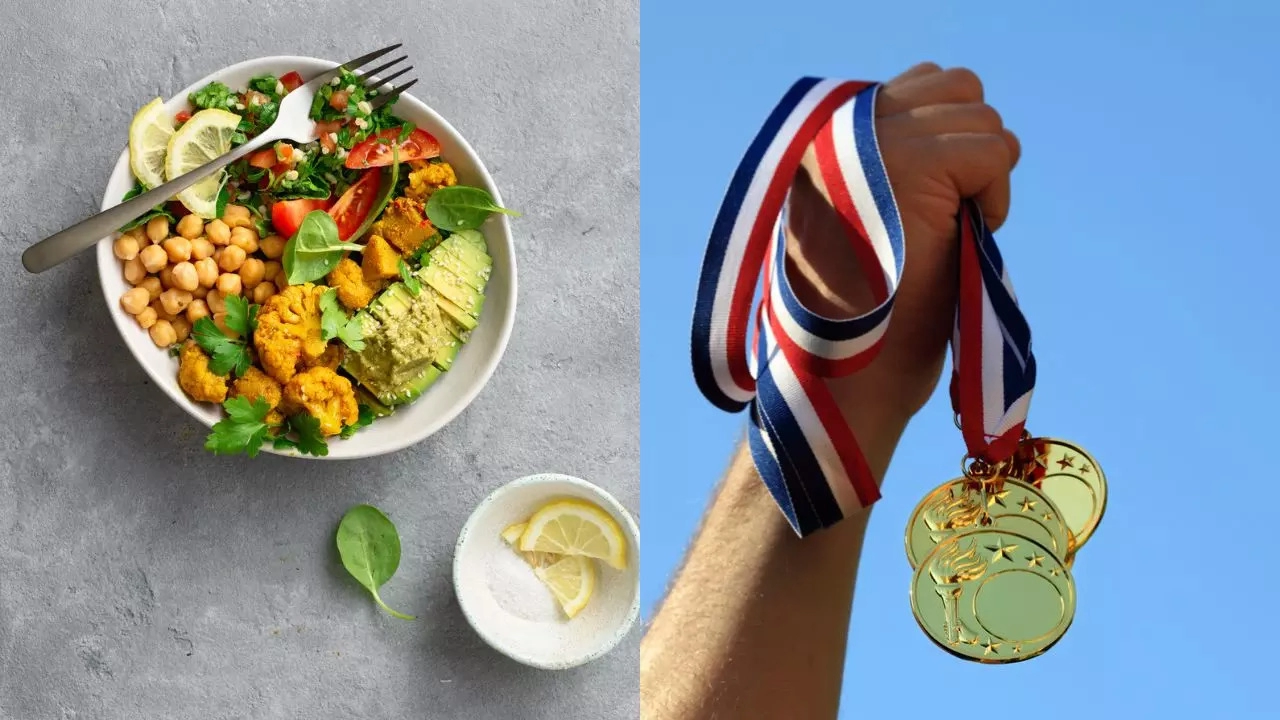Akanksha Arora • 05 Aug 2024
What Do Olympians Eat To Stay Fueled Throughout The Competition? Expert Reveals

What Do Olympians Eat To Stay Fueled Throughout The Competition? Expert Reveals. (Image credits: iStock)
As the Paris Olympic Games are underway, have you wondered what athletes like Manu Bhaker, Mirabai Chanu, Rafael Nadal, and many others eat? We all are well aware that a diet is a 'make or break' for sportsperson and during a competition which holds so much significance it is extremely important to keep your diet in check.
Not many know but the path to an Olympic medal is loaded with carbs. In fact, Usain Bolt, the eight-time Olympic gold medalist, also deemed as the fastest man alive, ate an estimated 1,000 McDonald's chicken nuggets over 10 days during the 2008 Beijing Olympics.
Monica Bearden, a registered dietitian and sports nutrition consultant at Houston Methodist, in her recent blog, gave us insights into how the diet chart of an Olympian works.
She explained that the best energy for athletes comes from carbohydrates. This is why their diets are usually higher in carbs. These carbs are then efficiently turned into energy and are the energy storage for muscles, called muscle glycogen.
For athletes, simpler (or refined) carbohydrates are quickly digested and are great prior to training and competing. Also, nutritious carbs, such as fruits, vegetables and legumes (beans, lentils and peas), are great for recovering afterwards. Whereas with most non-athletes, they would benefit from these high-fiber, high-nutrition carbs as their main source of energy.
Protein is also important during recovery for muscle building and repair to help build strength and stamina.
Monica, in the blog, wrote, "Athletes tend to perform at their best when they receive adequate sleep and make healthy food choices — not just daily exercise and training. A great way to keep the body at its best is choosing fresh and whole foods (foods that have not been processed) and decreasing ultra-processed foods." She further added, "Athletes are also very good at consuming the right number of calories to fuel their performance. It's the same for everyone — food intake and food choices should match their daily needs and performance goals."
These are a few common elements in every athlete's plate.
- Water
- Dairy and nondairy beverages
- Diluted juice
- Flavored beverages
- Coffee and tea
- Salt and pepper
- Herbs
- Spices
- Vinegar
- Salsa
- Mustard
- Ketchup
As per the blog, a detailed breakout of the blog includes.
Easy training contains the least amount of carbs. It includes:
50% fresh fruits and veggies, such as:
- Raw veggies
- Cooked veggies
- Veggie soups
- Fresh fruit
- Poultry
- Beef, game or lamb
- Fish
- Eggs
- Low-fat dairy
- Soy (tofu, tempeh)
- Legumes and nuts
Moderate training plates increase fat and carb intake and while reducing vegetables. It includes:
- 37.5% veggies
- 37.5% grains
- 25% lean protein
- 3-6 teaspoons of fat
- Sides of fresh, stewed or dried fruit
- 50% grains
- 25% veggies
- 25% lean protein
- 6-9 teaspoons of fat
- Sides of fresh, stewed or dried fruit
Get Latest News Live on Times Now along with Breaking News and Top Headlines from Diet, Health and around the world.